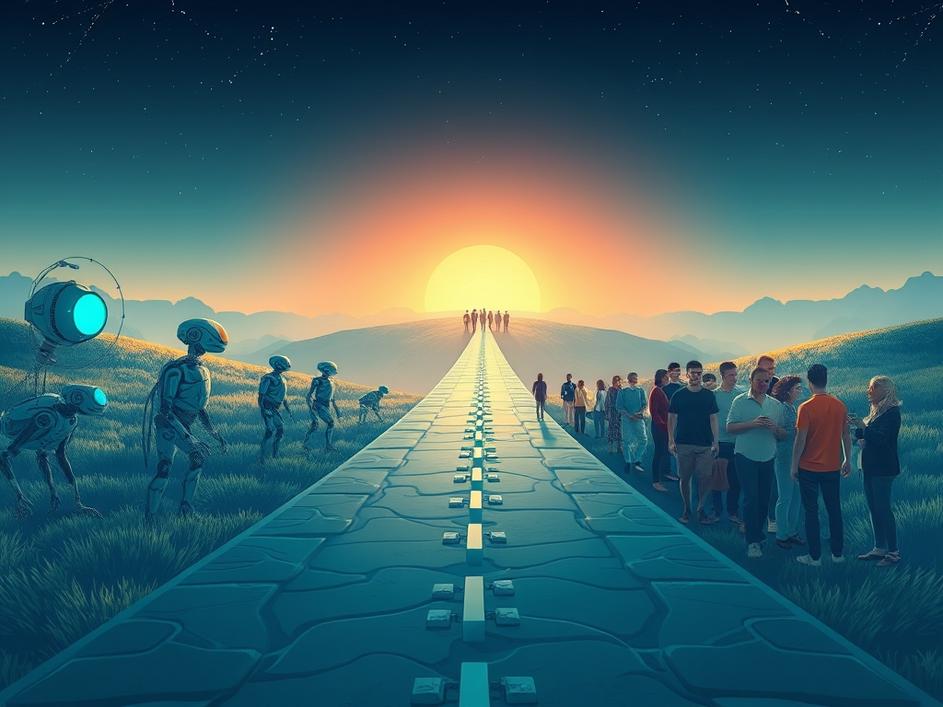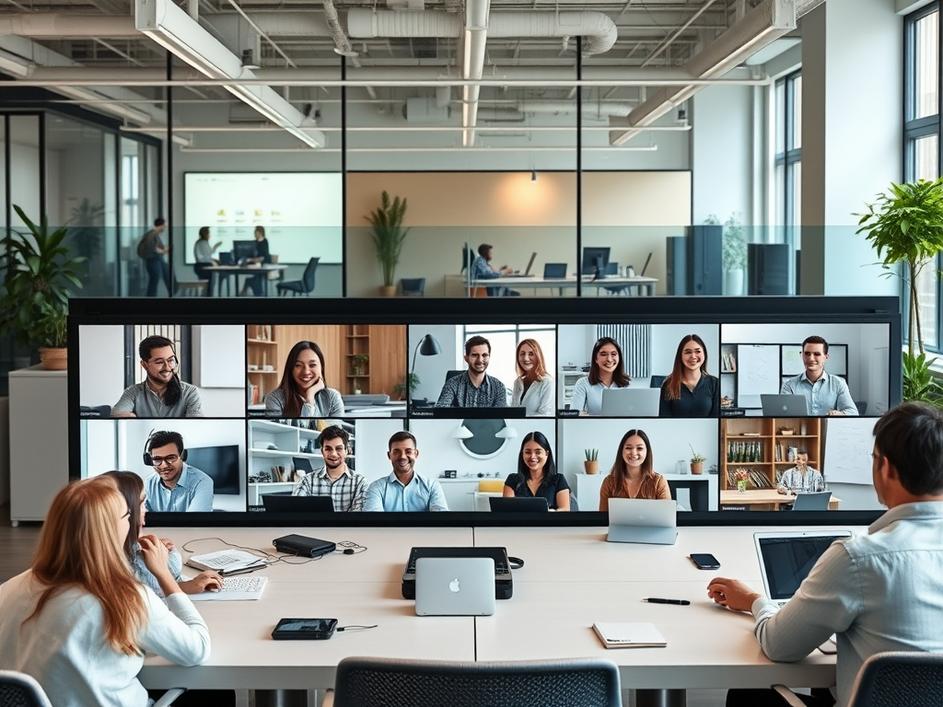


We are a digital agency helping businesses develop immersive, engaging, and user-focused web, app, and software solutions.
2310 Mira Vista Ave
Montrose, CA 91020
2500+ reviews based on client feedback

What's Included?
ToggleOur world feels like it’s at a huge crossroads, doesn’t it? On one side, we have artificial intelligence, or AI. It’s not just a fancy term; it’s getting smarter, faster, and more capable every day. AI is changing how we work, how we learn, and what we even think is possible. It’s a powerful wave, ready to reshape everything. But that’s only half the story. On the other side, there’s a growing talk about how our society should really work. People are discussing sharing resources, making sure everyone has what they need, and tackling big inequalities. These ideas, sometimes called “socialist,” are gaining traction. It’s like two massive forces are heading straight for each other. Where they meet will decide a lot about our future. This isn’t some far-off sci-fi story; it’s happening right now, and figuring it out is one of the biggest puzzles we face.
Let’s look at AI first. It’s truly amazing. We see self-driving tech, programs that write text, and tools that create art from simple commands. The big promise of AI is that it can make everything more efficient. It can help us solve huge problems and produce vast amounts of goods and services. It can also free us from dull, repetitive tasks. But with all this good, there’s a real challenge. When machines do what humans used to, what happens to those jobs? What about the people who held them? This isn’t just about factory jobs anymore; it touches almost every type of work. If fewer people are needed to create immense wealth, that wealth could end up with a very small group. AI could make the gap between rich and poor even wider, making the question of who benefits incredibly urgent. Our current economic systems might not be ready for such a big shift.
Against this fast-changing AI backdrop, ideas about “sharing” or “collective good” are getting a lot more attention. For a long time, these kinds of ideas were seen as outdated. But today, with huge income gaps, worries about climate change, and many people feeling left behind, these talks are making a big comeback. People are asking: If companies make huge profits, but wages stay low and basic costs like healthcare keep going up, is the system really working for everyone? They’re talking about things like universal basic income (UBI), where everyone gets a regular payment for basic needs. They also discuss making sure essential services, like good healthcare or education, are available to everyone. It’s a call for more safety nets, more fairness, and a belief that society should better care for all its members. It’s a deeper question about what kind of world we truly want to live in.
So, what happens when AI’s incredible power and the desire for a more shared, equal society meet? This is where things get truly fascinating. On one hand, AI might make some “socialist” ideas much more possible. If machines can automate almost everything, creating tons of goods and services with very little human effort, then the argument for UBI becomes stronger. We might not need everyone to “work” in the traditional sense, and society could still be incredibly productive. The challenge would then shift from “how do we create wealth?” to “how do we distribute it fairly and make sure everyone has a meaningful life?” On the other hand, there are big risks. Who will own all this powerful AI and its automated systems? If a few giant companies control it all, they could have unimaginable power, making true sharing much harder. How we answer these ownership questions will shape everything that follows.
Beyond money, there’s a big human question too. For many of us, our work isn’t just about a paycheck; it gives us purpose, identity, and a place in the world. If AI takes over many of the jobs we do now, how will people find meaning? This isn’t an easy question. We might need to completely rethink what “work” actually means. Maybe creativity, building communities, caring for others, or learning new things will become the new “jobs.” Society might need to focus more on chances for personal growth, artistic expression, and human connection, instead of just making more stuff. This shift means we can’t just let AI happen to us. We have to actively decide how we want to use it to build a society that still values human dignity and well-being. The talk needs to go past just efficiency and profit and include what makes a good life for everyone. Our values for a fair society truly matter here.
From my point of view, this collision isn’t just a threat; it’s a huge opportunity. Yes, if we don’t handle it well, AI could make inequality much worse and lead to social problems. But it also gives us a chance to build a truly different kind of society. Imagine a world where everyone’s basic needs are met, where dangerous and boring jobs are done by machines, and people are free to follow their passions, help their communities, and discover new things. To get there, we can’t just hope things work out. We need smart plans that make sure AI’s benefits are shared widely. We should look at new ways to run our economy, like better social safety nets, maybe even different ways for communities to own AI-driven industries. It will take open talks, trying new ideas, and always putting human values first. It’s about choosing to guide this powerful AI toward a future that serves all of us, not just a few. This is our moment to build a better world, but it needs brave choices from all of us.
So, what does all this mean for us? The road ahead isn’t clear, and it won’t be easy. We face big questions about how we organize societies, what “work” means, and how we share the amazing benefits of new technology. The meeting of AI and ideas of collective well-being forces us to think about what we value most. Do we want a future where machines do everything, but only a few people benefit? Or do we want AI to help create a world with more chances, more security, and more freedom for everyone? The choices we make now, the talks we have, and the ideas we support will directly shape that future. This isn’t just for politicians or tech bosses; it’s for all of us to imagine and help build the kind of world we want to live in. We can use AI to make a society that is truly fairer and more human. The future isn’t just coming; we are making it, right now, at this important turning point.



Comments are closed